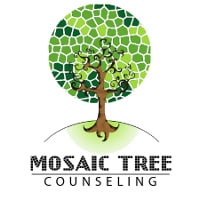Depression
Depression is a mental health disorder characterized by persistently depressed mood or loss of interest in activities, causing significant impairment in daily life. According to research, Depression is a very common and serious disorder affecting more than 3 million people in the U.S. alone every year (MedlinePlus). It’s more than just a feeling of being sad or “blue” for a few days.

Increasingly, research suggests these factors may cause changes in brain function, including altered activity of certain neural circuits in the brain (Halverson, 2018). Depression is a disorder of the brain. There are a variety of causes, including genetic, biological, environmental, and psychological factors. Depression can happen at any age, but it often begins in teens and young adults. It is also found to be more common in women. Women can also get postpartum depression after the birth of a baby while some people get seasonal affective disorder in the winter. Depression is also noted as one part of bipolar disorder. The persistent feeling of sadness or loss of interest that characterizes major depression can lead to a range of behavioral and physical symptoms (MedlinePlus). These may include changes in sleep, appetite, energy level, concentration, daily behavior, or self-esteem. Depression can also be associated with thoughts of suicide.
The mainstay of treatment is usually medication (antidepressants), psychotherapy, or a combination of the two. Increasingly, research suggests these treatments may normalize brain changes associated with depression. In all patient populations, the combination of medication and psychotherapy generally provides the quickest and most sustained response. Combination therapy has also been associated with significantly higher rates of improvement in depressive symptoms; increased quality of life; and better treatment compliance, especially when treatment is needed for longer than 3 months (Halverson, 2018). We provide psychotherapy from a humanistic approach, with cognitive behavioral therapy, psychoeducation, helping resolve conflicts, and mindfulness.
List of Citations
Medline Plus. Depression. Retrieved from HERE
Therapy Modalities
Abuse & Neglect
ADHD
Anxiety
Bipolar
Career Counseling
Communication Difficulties
Couples Therapy
Depression
Eating Disorders
Employee Assistance
Impulsive Behavior
Obsessive Compulsive Disorder (OCD)
Oppositional Defiant Disorder (ODD)
Play Therapy
Posttraumatic Stress Disorder (PTSD)
Self Esteem
Self Mutilation
Shop
Social Skills
Request More Information

